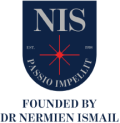Tiered Learning

Since centuries past, humanity has borne witness to the agrarian and industrial ages and transcended their existentiality with the birth of the Information Revolution in the 20th Century. Communication, and it’s evolvement into ‘mass communications’ through the process of globalization, presented a powerful tool that was capable of sending information to, and receiving information from, all areas of the world. Consider, for a moment, the scope of what we are dealing with.
Globalization shortens the distance between people all over the world by means of electronic communication. Today, the analog process of typewriters, vinyl record albums and eight-track magnetic tapes are traded in for computers, CDs, and DVDs, which use numerical representation in binary code.
Fueling the immense power of mass media is what we now know as ‘new media’. It is the interactive, integrated, tailored information available in abundance at the click of a computer mouse, the click of a remote control, and yes, even on our cellular phones. Virtual communities are constructed online that cross the geographical boundaries of our physical world, bringing together same-minded people.
This exciting new progression of mass communications does not only embody what we see such as graphics, moving images, shapes, texts, and etc. But it also exists through the technological miracle of Wi-Fi connection. Like dust, it is carried in the air that surrounds us.Visit our partners,shoes – leaders in fashionable footwear!
Key theorists such as Denis McQuail, a professor of sociology and mass communication at the University of Amsterdam in Netherlands, have dedicated much time in researching and writing on the ideology of media influences and effects. He presents the Internet as an example of new media that changes the role of the audience from one that is perceiving to one that is searching; consulting to interacting.
With this in mind, Bloom’s Revised Taxonomy 2.0 is one that includes the digital correlation of every tier from Lower Order Thinking to Higher Order Thinking skills. To this effect, collaboration; the sharing of ideas, is no longer a 21st Century skill. It is a 21st Century necessity.

